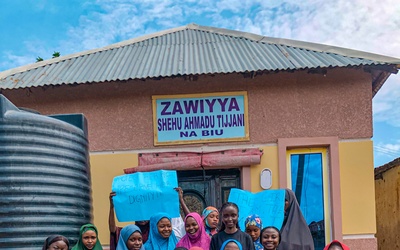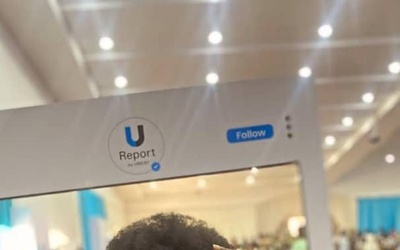The 25th of March 2025 found me on the grounds of the
Muhammed Indimi Hall at the University of Maiduguri, volunteering with U-Report
#SwipeOutCholera campaign. The energy was high, the atmosphere was charged, and
I was proud to play my part—not just as a volunteer, but as a U-Reporter
committed to making change.
Before now, Cholera had been an abstract concept to me, a disease I had heard about but never truly understood or directly experienced but I have come to learn that cholera is very real, very deadly and disproportionately affects communities with poor sanitation infrastructure. This hits home, especially in my immediate community where flies dance freely around food prepared near open soakaways. This was more than volunteering, it was about using digital advocacy to save lives.
As a volunteer for U-Report, it was a determining role for me, from the pre- mobilization to the actual event, I captured the moments, shared live updates, and amplified the event across U-Report’s social media platforms. It was a powerful reminder that youth voices matter and that social media can be a tool for real impact.
What struck me most during the campaign was the simplicity of cholera prevention messages: hand washing with soap, treating water before drinking, proper food handling, proper waste management and adequate sanitation facilities. Yet in many areas and communities around Maiduguri, these basics are luxuries rather than standards.
More and more I realize that digital advocacy is not just about sharing information online but about creating a bridge between knowledge and action, between health professionals and communities. The #SwipeOutCholera campaign taught me that health advocacy starts with personal responsibility and thrives through community and collective action. It was indeed a privilege working with young advocates and students. We came together for one goal: to swipe out cholera and build a healthier, more informed future.
Credit: Jola Praise Ademola








